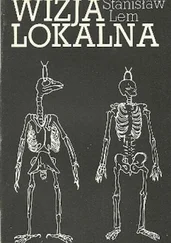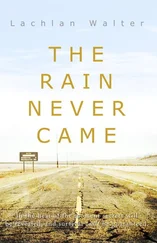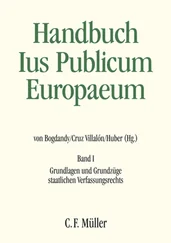M. Lachlan - Fenrir
Здесь есть возможность читать онлайн «M. Lachlan - Fenrir» весь текст электронной книги совершенно бесплатно (целиком полную версию без сокращений). В некоторых случаях можно слушать аудио, скачать через торрент в формате fb2 и присутствует краткое содержание. Жанр: Фэнтези, на английском языке. Описание произведения, (предисловие) а так же отзывы посетителей доступны на портале библиотеки ЛибКат.
- Название:Fenrir
- Автор:
- Жанр:
- Год:неизвестен
- ISBN:нет данных
- Рейтинг книги:5 / 5. Голосов: 1
-
Избранное:Добавить в избранное
- Отзывы:
-
Ваша оценка:
- 100
- 1
- 2
- 3
- 4
- 5
Fenrir: краткое содержание, описание и аннотация
Предлагаем к чтению аннотацию, описание, краткое содержание или предисловие (зависит от того, что написал сам автор книги «Fenrir»). Если вы не нашли необходимую информацию о книге — напишите в комментариях, мы постараемся отыскать её.
Fenrir — читать онлайн бесплатно полную книгу (весь текст) целиком
Ниже представлен текст книги, разбитый по страницам. Система сохранения места последней прочитанной страницы, позволяет с удобством читать онлайн бесплатно книгу «Fenrir», без необходимости каждый раз заново искать на чём Вы остановились. Поставьте закладку, и сможете в любой момент перейти на страницу, на которой закончили чтение.
Интервал:
Закладка:
‘Saint-Etienne, Father.’
They were at the great church of Paris. Jehan could almost sense its bulk before him, as if it did something to the air around it, or rather to the dark — intensifying and deepening it, turning it into something Jehan could feel on his skin like the presence of deep water. Since he had been blind, Jehan had come to almost feel the pressures that buildings and even people exerted on the air. He might have been tempted to say he had evolved an extra sense but he was a practical man. So long in the darkness, he thought, his mind simply looked for stimulation in other ways. And of course he remembered the church from before he had been afflicted. It was almost the first thing he’d seen when he came to Paris, brought by monks from the great forest of the Rhine. Perhaps that accounted for the resonance he still felt.
Jehan could recall little of his early life. He’d been a foundling. That building was almost his first memory. He remembered the huge octagonal dome rising above him out of the many-sided base. He had never seen anything like it. The monk who had brought him from the east had gone inside to discuss the boy’s future, leaving Jehan standing in the overwhelming bustle of the Parisian street. He remembered how he’d run his hands all the way around the building and counted its sides — twelve, each bearing a fresco of a man he now knew to be an apostle. He recalled the deep dark windows, the sheer bulk of the stone and, when you went inside, the vaulted ceiling, the marble on the floor so shiny that he had feared to tread on it, thinking it was the surface of a pool. Then, as he’d waited for the brothers of Saint-Germain to collect him, he remembered the sun through the windows in the evening that cast shadows that seemed as deep as pits.
‘Is she alone in there?’
‘Yes, it is very late.’
‘Carry me in and set me beside her.’
The monk was lifted from the pallet and carried into the church. He felt the warrior stumble as he went through the porch.
‘Be careful,’ said the confessor.
‘I am sorry, Father. We are all blind men in here, there is scarcely a light.’
The confessor grunted. Since the siege the church would have given up its candles, and besides, why would it be lit at night?
‘Can you see her?’
‘No.’
‘I am here, whoever it is who looks for me.’ The voice was clear and strong, with that mild note of irritation that royals often employed when speaking to their inferiors. He recognised the tone. The nobility were occasional visitors to his monastery, though the men came more often than the women. Noble ladies, though, were interested to meet saints, and he had received her there when she was around twelve. He had been eighteen. Now she was eighteen and her voice had changed and deepened, but he still knew it. The girl had asked him why he was so ugly. He had replied that it was the will of God and he thanked Him for it.
The confessor breathed in, using the smell of incense and beeswax to calm himself and order his thoughts. What would he say? He had no idea now; he only knew what he would not say, that she must go, it was her duty. No, he would put the alternatives before her and the decision would be up to her.
‘It is Confessor Jehan, lady.’
‘They sent me a saint,’ she said. The voice was not that of a frightened country girl with a head full of devils. It was absolutely that of a lady of the court, one of those educated women who liked to tease the priests with their knowledge of the Bible, to argue even — however demurely — about its interpretation.
‘I am not dead yet, lady, nor would I presume to know the creator’s view of me.’
‘You are a healer, Confessor. Have you come to cure me of my resolve?’
Jehan, used to listening where he could not see, detected a note of fear in her voice. And no wonder, he thought. Her options in life were very unattractive.
‘I have come to speak to you, lady, that is all.’
There was a noise from outside, shouting and screaming, the ringing of bells and the blowing of horns. It was the sound, Jehan knew, of battle.
‘The Norsemen are attacking?’ said the confessor.
‘It would sound as if that were so, Father,’ said the monk carrying him.
There was a great crash quite near the church. The monk gave a cry of surprise.
Jehan said, ‘God smiles on those who fall defending his name, brother. It’s unlikely to be a serious raid; I think they’re just trying to prevent Eudes from repairing his tower. Carry me on, as I said.’
The monk walked on through the vast space of the great building. Jehan heard the scrape of a flint, smelled tinder and the burning beeswax that followed it. He heard too the lady’s intake of breath as she saw him.
‘I’m afraid the years have not improved my looks, Lady Aelis.’
‘I hope they have improved my manners,’ she said. The girl sounded genuinely shocked, and the confessor could hear she was struggling to control her voice.
‘May I sit a while with you, then?’
‘Yes.’
There were more screams from outside. The defenders would be fighting, thought the confessor, largely without armour. There would have been no time to put it on. His whole conversation, he thought, could very quickly become an almost grotesque irrelevance if the northerners got into the city. How many of them were there? Thousands. How many men-at-arms in Paris? Two hundred and fifty? While the towers held they were safe. If they fell then the city would be swamped. There was nothing for it but to proceed and to trust to the will of God, as he had always done.
‘Set me down,’ he said to the monk, ‘then draw your sword and go to the ramparts to perform the office of a faithful man.’
The monk put him down then left, clumping his way from pillar to pillar as he walked out of the candle glow.
‘You are…’ She hesitated.
‘Worse than I was? There is no need to hide from it, lady; it is a plain fact.’
‘I am sorry.’
‘Do not be. It is a gift from God, and I welcome it.’
‘I will pray for you.’
‘Do not. Or rather, pray as I pray. Thank God for visiting this condition upon me and the opportunity it has given me to prove my faith.’
Aelis caught the implication of his words. He felt blessed to have been tested in his faith. She should feel the same. She did not, however.
She looked at the figure in front of her in the candlelight. When she had seen him before he had been blind and confined to a chair. Then, she had been struck by his eyes, which didn’t focus at all but ceaselessly scanned the room, as if he was trying to follow the flight of an annoying fly. His face too had been twisted into a permanent grimace. Though she had thought him ugly, she had seen worse deformity on any market day in Paris. Now, she thought, he could be the king of beggars, if he chose. His body seemed to have shrivelled, his arms to have withered and twisted; his head was cast back as if permanently looking upwards. She knew the joke was that he always looked to heaven, but, faced with the reality, she could not find it funny. The monk swayed back and forth as he spoke, like someone in deep contemplation. Aelis found the whole effect very unsettling.
Ever since she had been a little girl, and more since she had become a woman, she had been able to perceive people in a way that went beyond the normal understanding of the five senses. It was almost as if she could hear people’s personalities like music, sense them as colours or symbols. She had grown up around warriors, seen their scars and heard their stories of battle and fortitude against the northerners. When they had spoken, the colour of iron had come into her mind, of swords and armour, and the dark skies of war. Her brother had a presence like a mailed fist, hard, uncompromising, but nevertheless insubstantial compared to that of Confessor Jehan. The monk’s body may have been broken, but his soul, his will, seemed to sit like a great mountain in the dark, solid and immovable.
Читать дальшеИнтервал:
Закладка:
Похожие книги на «Fenrir»
Представляем Вашему вниманию похожие книги на «Fenrir» списком для выбора. Мы отобрали схожую по названию и смыслу литературу в надежде предоставить читателям больше вариантов отыскать новые, интересные, ещё непрочитанные произведения.
Обсуждение, отзывы о книге «Fenrir» и просто собственные мнения читателей. Оставьте ваши комментарии, напишите, что Вы думаете о произведении, его смысле или главных героях. Укажите что конкретно понравилось, а что нет, и почему Вы так считаете.












